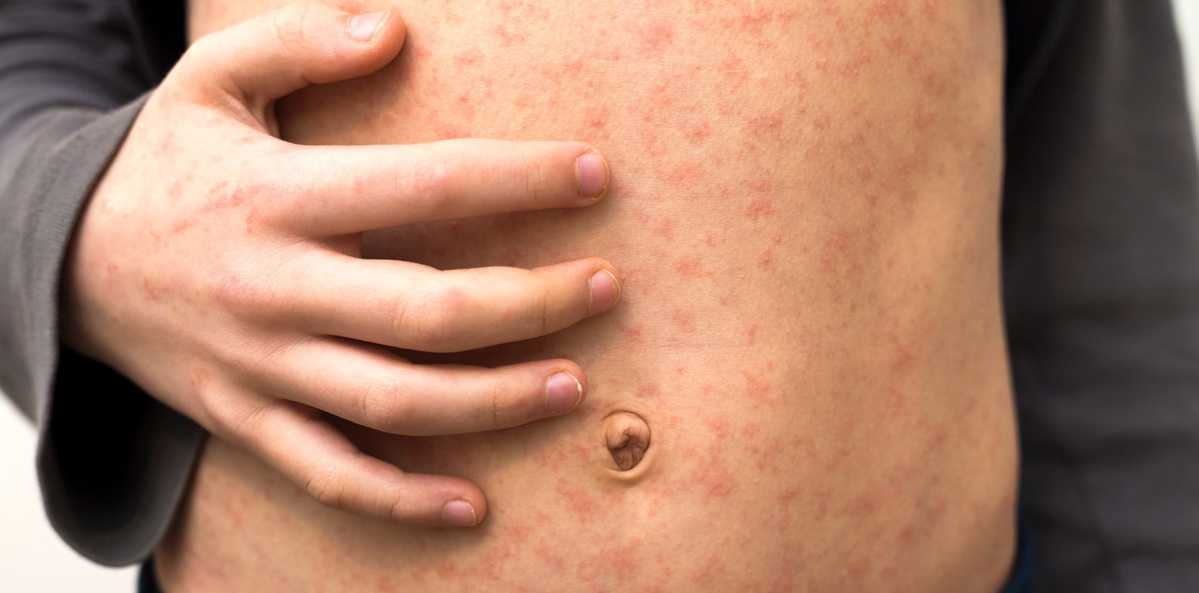Case numbers have increased more than tenfold on the same period last year, and experts have urged more testing and a push to raise vaccination rates.
Pertussis cases are more than 10 times higher so far this year than for the entire first quarter of 2023, prompting public health alerts across Australia.
According to data from the National Notifiable Disease Surveillance System, there have been 1375 cases of pertussis across the country in 2024 as of 29 February.
Queensland has recorded the most cases (556), followed by NSW (509), Victoria (168), South Australia (44), Western Australia (24), Tasmania (seven), the ACT (three) and the Northern Territory (two).
There was a total of 124 cases across Australia in the first quarter of 2023, and 2440 cases for the entire year, the NNDSS shows.
The spike in cases hasn’t come as a major surprise to Australian infectious diseases experts, but they are concerned about the impact of lower vaccination rates on how well the country can weather the outbreak.
In December last year, infectious diseases paediatrician and Immunisation Coalition member Professor Robert Booy told The Medical Republic Australia could be heading for a pertussis outbreak in 2024.
“It’s eight years since we last had an outbreak in Australia and normally, they come every four years,” said Professor Booy.
“So this is likely to be a big outbreak, if only because there are so many more susceptible children and adults out there to catch it.”
He said children born during covid were particularly susceptible to pertussis because lockdowns and social distancing during the pandemic meant they were not exposed in any way to the disease.
Infectious diseases physician and microbiologist, Associate Professor Paul Griffin from the University of Queensland, told TMR that many of the behaviours adopted during the pandemic, such as staying home when unwell, increases in hand washing, social distancing and mask wearing had now stopped, which would also contribute to the spread of infectious diseases.
“I think the thing that’s clear, though, is that the vaccination rates and declines in maternal vaccination, and overall vaccination, particularly focused around in certain regions are significant, and will very much be contributing to what we’re seeing,” he said.
Professor Griffin said there was a critical need for more publicly funded awareness campaigns about the importance of vaccination for infectious diseases, and research to better understand what some of those barriers are to vaccination and how this could be addressed.
He pointed to the global rise of measles cases at the moment, including in Australia where the number of cases for 2024 has reached 16 – just 10 shy of the total number for the whole of 2023.
“We should have essentially been able to eradicate measles by now, and the fact that we’re seeing a resurgence, basically across the world, is a really telling sign when we do have a vaccine that is remarkably effective, long lasting, and efficacious, yet we’re seeing the rates decline,” said Professor Griffin.
He conceded that talking about vaccination had “become really complicated” by the conversations around covid vaccines and who’s eligible, but it was vital that other vaccinations remained a priority for discussion.
“The landscape is so much more complex,” he said.
Related
“We know there are geographical areas where the rates are lowest; we know there are people for whom English is a second language, and who might live remotely, for example, and so we need to make sure these campaigns specifically target some of those areas that we now have greater challenges.
“It’s got to be resourced because the health care system, GPs and pharmacists are already under pressure.”
Affordability – in particular, in relation to the pertussis vaccine which is not available free under the National Immunisation Program – was another issue, Professor Griffin told TMR. Removing those financial barriers and expanding the free availability, even to areas where there were known high case numbers, would make a big difference, he said.
He urged GPs to consider having a low threshold when testing for pertussis and other respiratory infections because there could be treatments available. Notification was also important as it helped build a more reliable picture of disease activity from a public health perspective.
“For every case we find there are certainly many more that we don’t,” said Professor Griffin.
“There’s a lot of cases that won’t be diagnosed and that’s a really big concern. The debate is raging a lot about whether if you’ve got someone who is young and otherwise fit, what’s the point of testing them, but I think there’s so many points in terms of finding specific pathogens, many of which we have treatments for.
“I think testing does remain vitally important, both for the management of the individual patient, but also for our understanding of the burden of these diseases in the community, down to where there may be pockets with higher levels of activity where we could have more targeted intervention. I think testing is a really important part of our strategy for all of these infectious diseases and should be encouraged.
“But having said that, we’ve made it difficult for people to get tested in terms of needing to get a request from a GP, and then go somewhere to have that test. For many people, again, that access is a challenge.
“I think that’s certainly something we could look at doing – making testing for these respiratory pathogens easier, particularly in the context of issues like we’re seeing with pertussis now. And, of course, covid at times, and inevitably, with RSV and flu coming up as well.”





